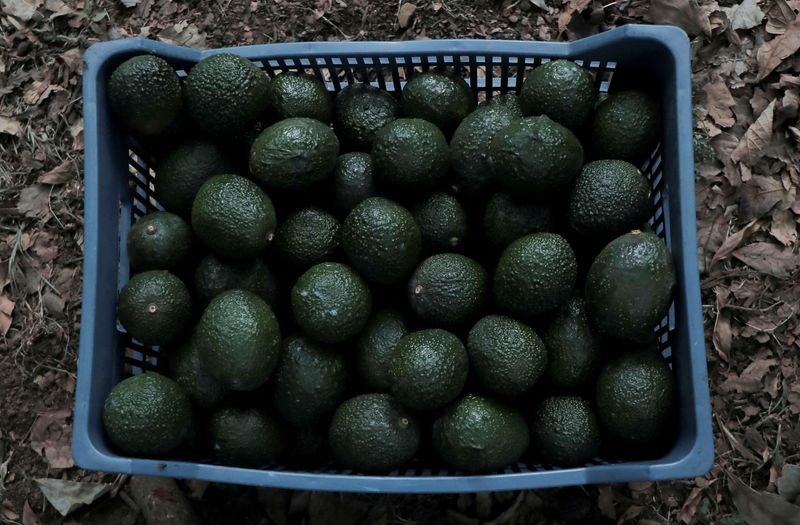Imagine, if you will, a sweltering July afternoon in central Mexico’s Michoacán state, where two colossal yellow bulldozers rip into the earth, tearing at the brown soil in the heart of an avocado orchard near the tiny town of Madero. Above them, a drone hovers, capturing the relentless destruction from a bird’s eye view—footage that tells a tale of ecological disaster. This isn’t just any construction project; this is the making of a water reservoir, an act that, under Mexican law, demands rigorous environmental scrutiny. But here’s the catch—of the hundreds of reservoirs dotting Madero’s landscape, only 42 are legally registered.
This unauthorized water grab is symptomatic of a larger crisis, one that pits Michoacán’s avocado industry—ravenous for resources—against a dwindling natural world. As droughts parch the region, producers drain lakes and communal basins with reckless abandon, leaving ecosystems teetering on the brink. And who’s to blame? According to some state officials, it’s the avocado farmers, expanding their empires at the expense of Michoacán’s precious forests.
Enter the U.S. non-profit, the Organic Consumers Association, with lawsuits in hand. Their targets? West Pak Avocado Inc. and Fresh Del Monte Produce Inc.—two avocado giants accused of falsely marketing their Mexican avocados as “sustainable” and “responsibly sourced.” But the reality, the lawsuits claim, is far grimmer: these avocados are steeped in environmental degradation.
The lawsuits, filed in D.C. Superior Court, seek to strip these companies of their greenwashing claims, shining a harsh spotlight on the murky supply chains feeding America’s avocado obsession. For while the U.S. market laps up 80% of Mexico’s avocado exports, worth a staggering $3 billion last year, the consequences are playing out in Michoacán’s ravaged landscapes and terrorized communities.
For every avocado that graces a guacamole bowl in the U.S., there’s a story of deforestation, of lakes drained to the dregs, of forests set ablaze. It’s a story that, according to local activists, the U.S. public remains largely unaware of. And as the demand for this “green gold” skyrockets—up 48% since 2019—the toll on Mexico’s environment and its people becomes ever more severe.
But the avocados don’t just come at the cost of trees and water. Organized crime, sensing the lucrative opportunity, has embedded itself into the trade. Farmers are extorted, communities are displaced, and violence simmers just beneath the surface. Climate Rights International, whose findings underscore the Organic Consumers Association’s lawsuits, reports over 30 instances of threats, abductions, and even fatal shootings linked to the avocado boom.
One anonymous farmer from Madero, his voice tinged with fear, recounted how he was kidnapped after speaking out against deforestation. “If they only knew,” he whispered, “behind every avocado that people in the United States eat, there is a bloodstain, a dead person, a missing person.”
Michoacán’s forests are disappearing at an alarming rate—up to 70,000 acres in just a decade, swallowed up by avocado orchards. Some local residents, pushed to their limits, have taken matters into their own hands, sabotaging the illegal water pumps that siphon off communal reservoirs, or even destroying the avocado orchards themselves.
But in this David-and-Goliath battle, the odds are stacked against them. The big players—companies like West Pak and Fresh Del Monte—continue to source avocados from illegally deforested lands, even after being made aware of the environmental destruction. And the avocados, dripping with the guilt of a ravaged landscape, still find their way onto U.S. supermarket shelves, from Whole Foods to Costco, Trader Joe’s to Target.
Whole Foods, to its credit, responded to inquiries, stating it’s working to prioritize Fair Trade certified and responsibly sourced avocados. But what does that mean in a world where sustainability promises are so often hollow?
“If these companies are serious about their public commitment to sustainability,” says Daniel Wilkinson, senior adviser at Climate Rights International, “they could easily clean up their supply chains and greatly reduce the main incentive driving deforestation and attacks on local communities.”
And yet, in the shadow of Michoacán’s denuded hills, where once-thriving forests have been reduced to ashes, one has to wonder—how serious are they? Alejandro Mendez, Michoacán’s Secretary of Environment, reveals a grim truth: Mexico hasn’t granted permission to convert forests to farmland in nearly three decades. “About eight or ten years ago it was pure wilderness here,” says Savas Melchor Gomez, the environmental director of Madero, pointing to a once-verdant mountain, now an orchard. “They set the mountains on fire to clear them and continue expanding, and it goes on and on.”
Michoacán officials have a plan—to launch an online platform this month that will certify avocados from orchards that don’t illegally deforest. But critics fear it’s too little, too late. The platform will only track deforestation from 2018 onwards, leaving a vast number of illegal orchards in the shadows, their fruits still making their way north.
And so, as the lawsuits unfold in U.S. courts, and as activists fight to hold companies accountable, the question looms: will these efforts be enough to stem the tide of destruction? Or will Michoacán’s forests continue to fall, tree by tree, as the world feasts on its “green gold”?

